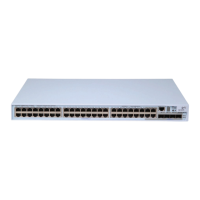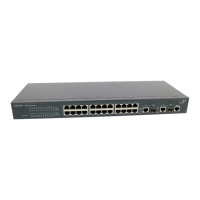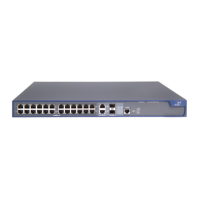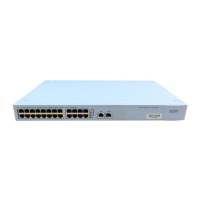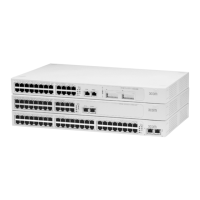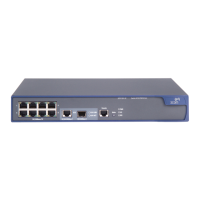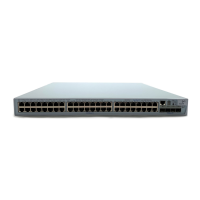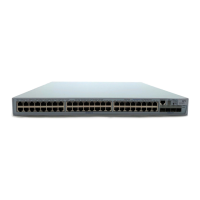1-5
Configuration Procedure
Table 1-2 Define a basic ACL rule
Operation Command Description
Enter system view
system-view
—
Create an ACL and
enter basic ACL view
acl number acl-number [ match-order
{ auto | config } ]
Required
config by default
Define an ACL rule
rule [ rule-id ] { deny | permit }
[ rule-string ]
Required
For information about
rule-string, refer to ACL
Command.
Configure a description
string to the ACL
description text
Optional
Not configured by default
Note that:
z With the config match order specified for the basic ACL, you can modify any existent rule. The
unmodified part of the rule remains. With the auto match order specified for the basic ACL, you
cannot modify any existent rule; otherwise the system prompts error information.
z If you do not specify the rule-id argument when creating an ACL rule, the rule will be numbered
automatically. If the ACL has no rules, the rule is numbered 0; otherwise, the number of the rule will
be the greatest rule number plus one. If the current greatest rule number is 65534, however, the
system will display an error message and you need to specify a number for the rule.
z The content of a modified or created rule cannot be identical with the content of any existing rule;
otherwise the rule modification or creation will fail, and the system prompts that the rule already
exists.
z With the auto match order specified, the newly created rules will be inserted in the existent ones by
depth-first principle, but the numbers of the existent rules are unaltered.
Configuration Example
# Configure ACL 2000 to deny packets whose source IP addresses are 192.168.0.1.
<Sysname> system-view
[Sysname] acl number 2000
[Sysname-acl-basic-2000] rule deny source 192.168.0.1 0
# Display the configuration information of ACL 2000.
[Sysname-acl-basic-2000] display acl 2000
Basic ACL 2000, 1 rule
Acl's step is 1
rule 0 deny source 192.168.0.1 0
Configuring Advanced ACL
An advanced ACL can filter packets by their source and destination IP addresses, the protocols carried
by IP, and protocol-specific features such as TCP/UDP source and destination ports, ICMP message
type and message code.
An advanced ACL can be numbered from 3000 to 3999. Note that ACL 3998 and ACL 3999 cannot be
configured because they are reserved for cluster management.

